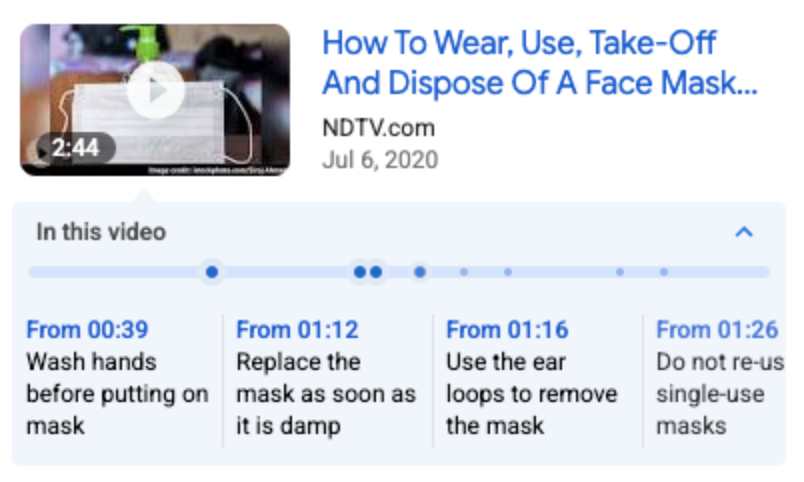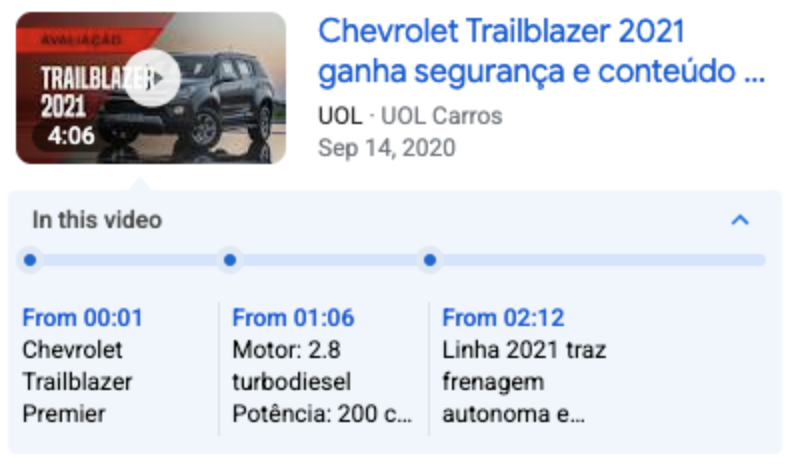Monday, July 19, 2021
Since video key moments first
launched in 2019, we’ve continued to expand and improve the feature. We’ve evolved the design and
brought key moments to more videos, including mobile and desktop, across all regions where Google
Search is available. Key moments are helping more people connect directly with the most relevant
segments of videos, and navigate them like chapters in a book.
Today, we’re launching a new way for you to enable key moments for videos on your site, without
the effort of manually labeling each segment. All you have to do is tell Google the URL pattern
for skipping to a specific timestamp within your video. Google will then use AI to identify key
moments in the video, and display links directly to those moments in Search results.


We first announced the SeekToAction
beta test during Google I/O, and as of today we’re moving the feature out of beta and supporting
this markup for any site with videos. Here are a few tips to keep in mind when implementing this
markup:
- Your URLs must have the ability to deep link into some point other than the start point in the
video. For example,http://www.example.com/example?t=30starts 30 seconds into a
video. - Use
SeekToActionmarkup on every
video page where you’d like Google to automatically identify key moments, and follow our
additional guidelines. Here’s a
detailed example. - To automatically identify key moments in your video, Google must be able to fetch
your video content files.
Note that SeekToAction markup applies only to videos embedded on your own site. If
you post videos on third-party platforms where you don’t control the schema.org markup, you can
reach out to those platforms to see if this markup is supported.
We hope you’ll find SeekToAction markup an easier, more efficient way to enable key
moments and help people engage more deeply with your videos. If you have any questions, post them in the forum,
connect with @googlesearchc on Twitter, or file
feedback directly on our documentation pages.

